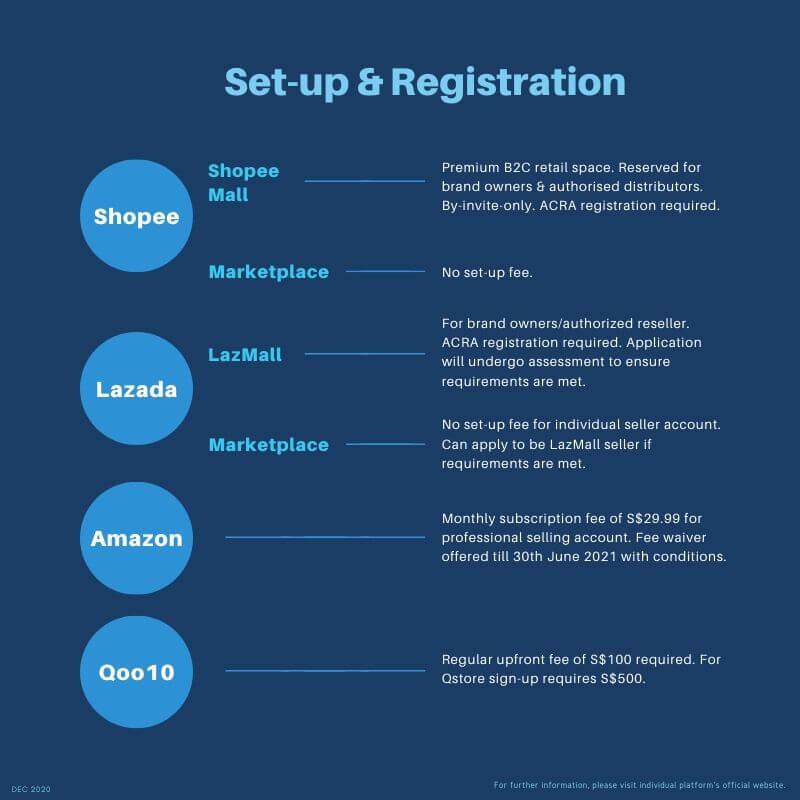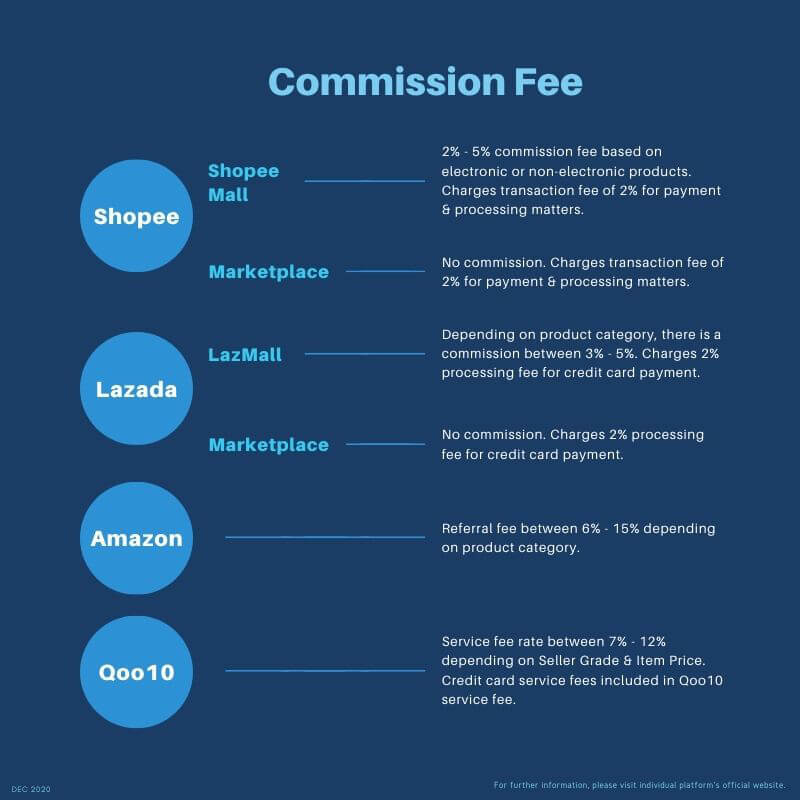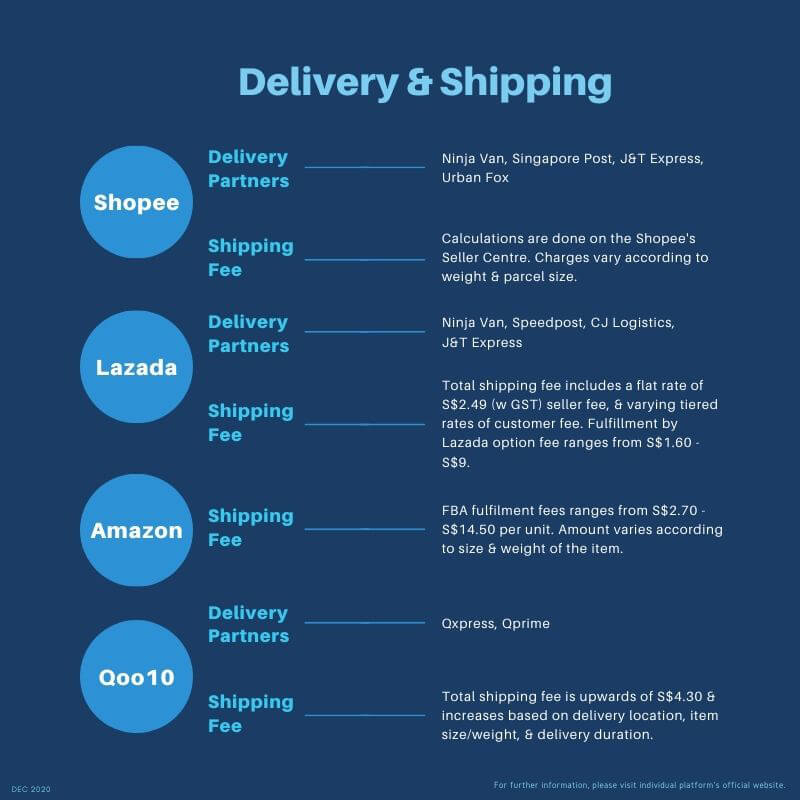In one of our Disruptive Technology Series, we explored the future of retail and began with the rise of e-commerce amidst a VUCA world. Although patrons can look forward to increased capacity limits and group size restrictions in malls during the Phase 3 period, the new normal of working from home and entry restrictions in malls/establishments remain.
Regardless, e-commerce is not likely to lose its reign – as always, convenience is king. According to analysts, the top four e-commerce platforms in Singapore based on monthly online traffic are Shopee, Lazada, Qoo10, and Amazon. The government has also identified these four platforms as e-commerce partners in their E-commerce Booster Package to support businesses’ digitalisation.
Although companies might have an online presence via their social media page (eg. Instagram, Facebook), these may not be sufficient to drive online sales, and e-commerce platforms offer holistic solutions to achieve this. Due to the additional services offered, starting an e-commerce business or opening an e-commerce account may not be as straightforward as there are many factors to consider to ensure the right platform is chosen.
If you are just beginning your research on e-commerce platforms, this article would be an excellent place to start to cover the bases while we cover the cost aspect of each platform.
Set-up & registration
The costs of set-up and registration vary across platforms. Within each platform, there are also different tiers depending on the level of selling activity. The infographic below is a brief breakdown comparing the set-up/registration needs of each platform.

Commission
Depending on the level of business activity, e-commerce platforms also charge a commission fee for successful transactions. The rates vary across platforms and are summarized in the following infographic.

For in-depth details on each platform’s commission/service fee charges, do visit their official websites – Amazon, Shopee, Lazada, Qoo10.
Delivery & shipping
Getting your first order on an e-commerce platform is only half the job done as the product would then need to be delivered to the customer. Some e-commerce companies partner-up with local delivery providers to ship out/deliver your product while others will have their own internal delivery service. Businesses selling on their e-commerce platforms can also choose to engage the platform’s fulfilment centre if they wish. The following infographic tersely covers the information on delivery and shipping.

For specific details on the shipping rates/calculations & fulfillment centre fees that each platform provides, do head on to their official websites – Fulfilment by Lazada, Lazada Shipping Fee Rate Card, Qdelivery Service by Qxpress, Shopee Supported Logistics, Fulfilment by Amazon fees.
Starting an e-commerce journey requires much research and the above is a non-exhaustive summary of the costs involved in running an e-commerce business. Other aspects that are worth taking note of would be the type of product a business is focusing on, and the chosen platform’s market presence as each platform have strengths in different product categories and serve different markets. This would obviously play a big role as it helps businesses plan and align their needs accordingly to their target consumer base and product. The exciting world of e-commerce awaits you.





